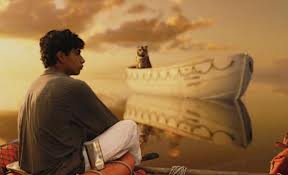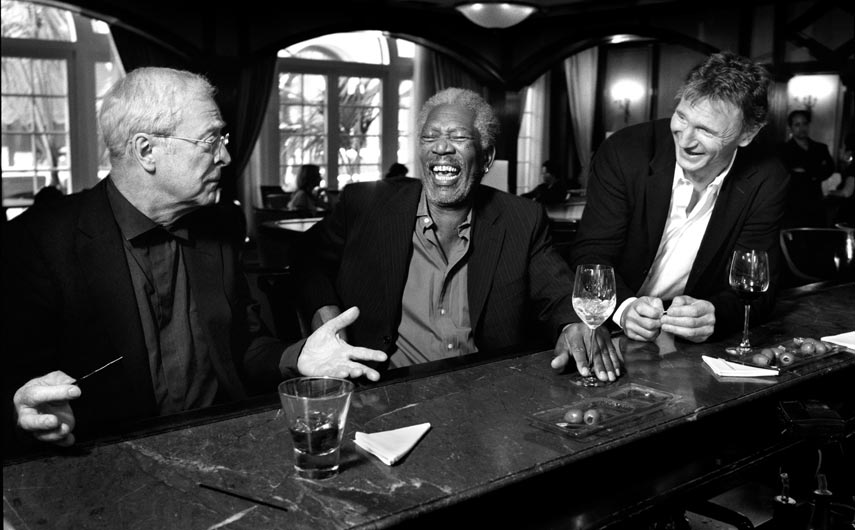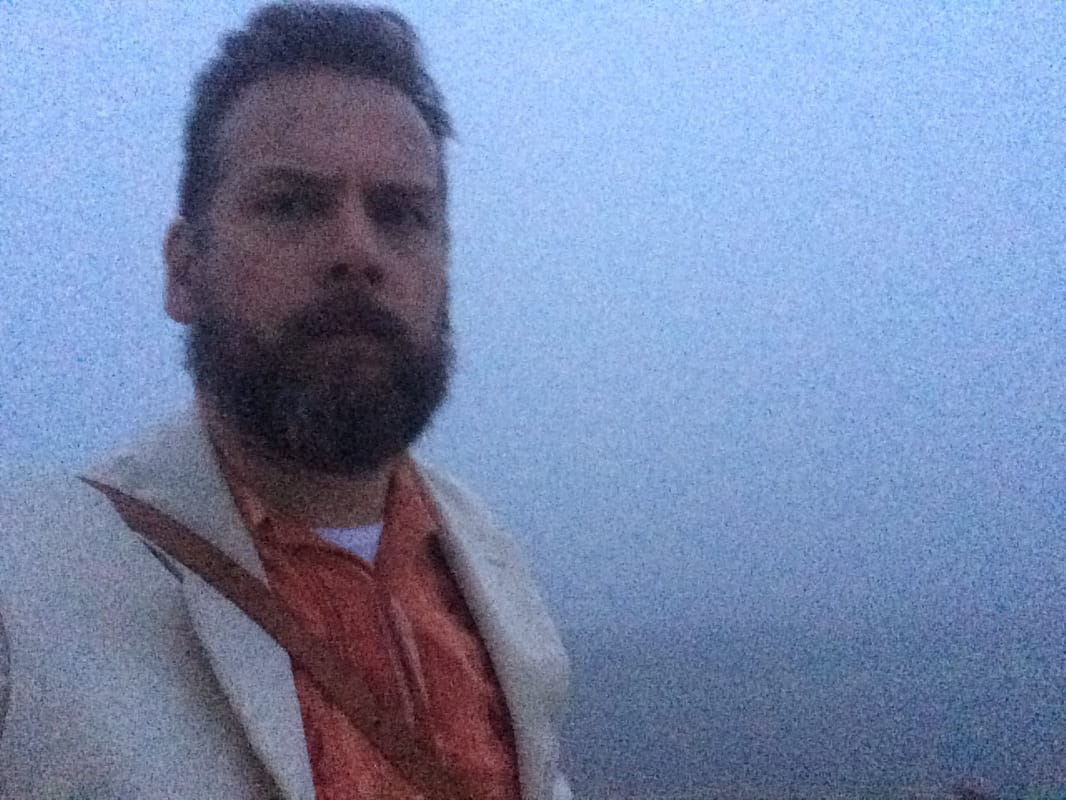 There's nothing wrong with Ang Lee's Life of Pi. It's a magical realist tale, a whimsical elevator pitch that would grab a studio executive who believes Zen and the Art of Motorcycle Maintenance to contain deep truths. In some wonderful 3D set ups we are truly and literally taken in. But this is my problem. There's nothing wrong with Life of Pi except for more or less everything. The whole film is a tale told to a Canadian by the eponymous hero of the story. The bland woodenness of these scenes could charitably be ascribed to Lee's wish to contrast banal middle class comfort to the exotic tale that is to come, but I found them to be manipulative. We - as an audience - had already been inscribed within the picture and our reactions and our ultimate decision are made for us. The film begins with the story of the young Pi being open to all religions, but ends up as paean to credulity. Even at the start, we are geared towards sympathizing with Pi's quest. Christianity is a Jesus figure from central casting and Islam is a magic box of serenity. Pi's father as a secular rationalist is the spoilsport, showing his young son a goat being killed by a tiger to show him the real way of the world. This knowledge will come in handy later, but he is in stark contrast to the benign gentle religions that Pi has pocketed. Set aside the massacres that are contemporary to the story, set aside the mutual intolerance of these religions and how Pi's pot pourri approach would be met with hostility if not out and out violence. This is after all, a fable. When the ship goes down and Pi's family are lost, the beauty of the spectacle belies the emotional loss it is supposed to represent. This is death as a wonderful thing, comparable to the callous roller coaster ride of James Cameron's contemptible Titanic. Left with his tiger on the boat, the film is genuinely compelling throughout this section, except perhaps when they land on a CGI island of such obvious symbolism that is sticks out like a fourth dimension. But then we're told the whole thing is bollocks. The story was a way of coping with the brutal reality of what actually happened. Of course, this isn't a straight out admission. Indeed, reality might have just been the story that seemed more credible to the investigators, another genre. Neither story explains why the ship sank, Pi tells us, in his a-ha! moment. But the reason the ship sank was never an issue in the film. The Japanese insurance men accept the more credible story, not because it's more brutal, but because it is more credible. Like Pi's father, they are pair of cold fish, these rational men. Us, the Canadian, Pi we are all supposed to prefer the CGI version, but I was left wondering why it is so many contemporary films seem to be about accepting a fraudulent version of reality because it helps society (The Dark Knight) or its more beautiful and pretty, as in this film. What about the film of the other story, what really happened. It wouldn't be life affirming and it wouldn't warm our hearts but cinema isn't Linus' security blanket, or at least shouldn't be. Ang Lee's film is the cinematic equivalent of the Little Book of Calm, pocket sized, beguilingly attractive, easily digestible and utterly wrong.
16 Comments
 It's a time for resolutions. So I'm going to try and keep up a little more with this blog. My film writing has expanded over the last two years from the occasional article for Film-Philosophy to an output of hundreds of pieces a year, if not thousands. This is all to the good, and includes chapters for books as well as the creation of a comedy site with a good friend, The Studio Exec. Add to this I'm still busy writing novels and screenplays. Oh, and I have a job. For anyone interested in cinema, there is always the nagging feeling of there being gaps in our knowledge. With the number of films being produced going up, and the availability now of cinema from all corners of the globe, it is difficult to keep abreast and at the same time make sure that you have a good background in the classics. I am also a perfectionist and collector, in the sense that I want to have seen all of a director's work. That is easy with someone like Kubrick. Less so with someone like Ingmar Bergman. Tarkovsky only made seven films in his (alas) short lifetime. Woody Allen has made 48. Bergman has 66 credits. Rainer Werner Fassbinder, whose work I'm criminally ignorant of, has 45 credits despite dying when he was only 37. I can't see myself ever getting all the way through Fassbinder and Bergman, but Tarkovsky, yes and I really need to get a least the major works of Bergman and Fassbinder. Another director I feel ignorant of is John Cassavetes (12 features, very doable). There are also those directors who I know quite well, but who I want to go deeper. Kurosawa is one of these. I'm going to combine these two resolutions and use this blog as a way of plugging the gaps in my own film knowledge and writing about it as I go. I hope you'll find it interesting as I go. And please feel free to use the comments section so that we can have a kind of dialogue. |
AuthorJohn Bleasdale is a writer. His work has appeared in The Guardian, The Independent, Il Manifesto, as well as CineVue.Com and theStudioExec.com. He has also written a number of plays, screenplays and novels. Archives
March 2019
|
 RSS Feed
RSS Feed


